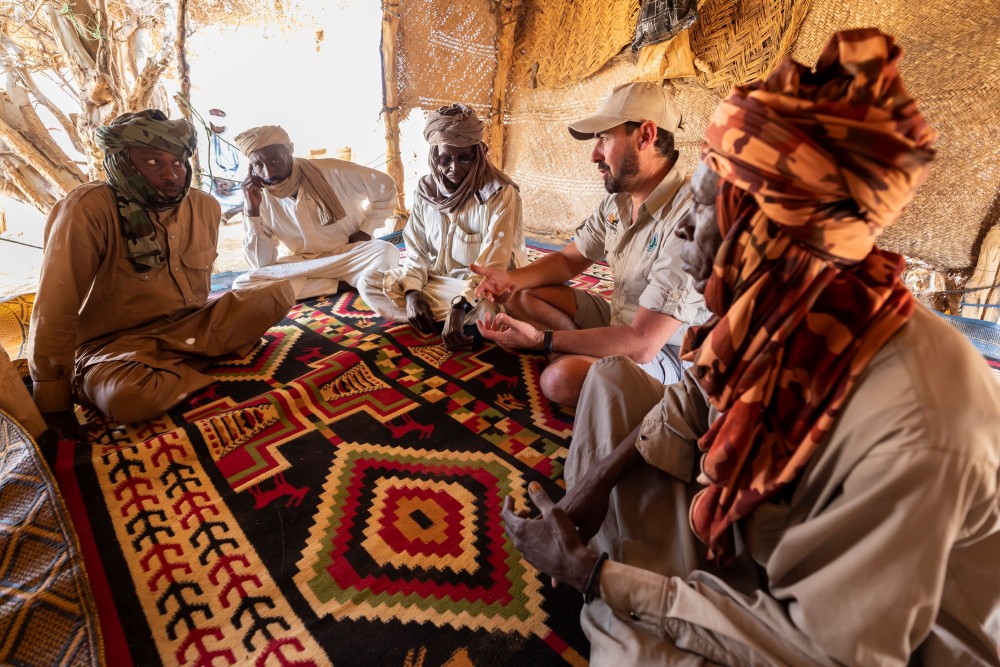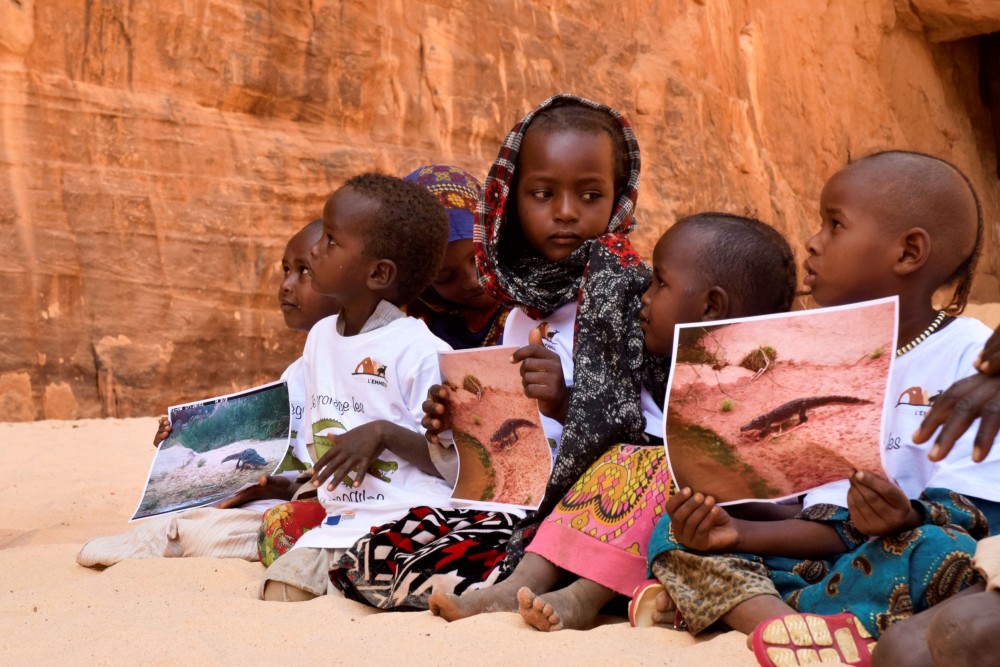Around 30,000 people legally live within or move through the Ennedi Natural and Cultural Reserve every year, making community work here of the upmost importance. In its contemporary setting, Ennedi hosts semi-nomadic groups of herders who move their livestock through the Massif. The livelihoods of these groups, and the thousands of local inhabitants of the area and surrounding regions, are tied to the availability of water, pastures and other benefits emanating from this oasis. These local populations are important stakeholders in the conservation of Ennedi, and engagement with them is essential to secure its long-term protection.
Community Engagement

African Parks works alongside communities in the conservation of Ennedi, raising awareness around the reserve’s conservation value, and developing comprehensive environmental education programmes.
The Community Development team was completed in 2022 with the addition of a community manager, community assistant, animator and agronomist technician.
Education and Environmental Awareness

In 2022, Ennedi funded five community teachers’ salaries in four primary schools. In collaboration with local authorities a new community school with two classrooms was built and equipped in Aloba. Opening in September 2022, this was a major highlight for the community as, prior to African Parks’ arrival, there was no school in the village, despite there being 95 children of school-going age.
A unique environmental education programme has been developed where 66 lessons of the existing national education programme were complemented with content on the topics of biodiversity, natural resources, waste management, protected areas and archaeology. The final product is a ready-to-use guide for teachers throughout the reserve.
Ennedi’s one-of-a-kind, environmental education truck "Les Petits Mouflons" has become the solution to reaching semi-nomadic children across the vast desert region where many of the dispersed villages have no schools. Completing 10 days in the field at a time, both children and adults are encouraged to participate in the many activities which include guessing the names of the different animals in the reserve to win prizes of books, pens and t-shirts and a short movie of the ostriches that were brought to Fada to repopulate the Reserve.
Sustainable Enterprise Development
The intention is to ensure that the nomadic tribes who have lived here for thousands of years can continue to do so in a way that supports the conservation of the area as well as realising the benefits of biodiversity conservation. Thanks to strong community-based conservation and protection efforts, African Parks is working to actualise revenue opportunities, through well-run niche tourism and other small enterprises in which it is investing. For example, lifestyles in Fada are improving with the development of a few shops that have expanded due to the operational requirements of the reserve. Ennedi is the second-largest provider of employment in the Ennedi Ouest province, after the Chadian government.
African Parks is also initiating sustainable pastoral programmes and providing training to boost skills development with a view to encouraging conservation-led economic development.
Community Infrastructure Development
In the Fada communal garden, boreholes with solar panels and pumps have been constructed. With this improved water supply, the Fada market gardeners began cultivating 2.75 hectares and provided seed to over 40 market gardeners’ associations.
